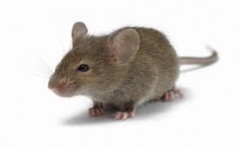About Mice
 Mice can live in a wide range of climates and they reproduce at an extremely fast rate. Both of these characteristics attribute to them being such a nuisance to get rid of. They can most commonly be found in grain crops or grassy fields. The first signs of a mouse in a home is usually small droppings that can be found scattered, usually in tight places such as behind furniture. Mice can cause damage to personal property, including stored food that they can get to.
Mice can live in a wide range of climates and they reproduce at an extremely fast rate. Both of these characteristics attribute to them being such a nuisance to get rid of. They can most commonly be found in grain crops or grassy fields. The first signs of a mouse in a home is usually small droppings that can be found scattered, usually in tight places such as behind furniture. Mice can cause damage to personal property, including stored food that they can get to.
Not only do mice annoy and cause personal property damage, they also can carry diseases which are transmitted to humans through bacterial food poisoning or a bite. Food poisoning is the most popularly spread disease by these pests. Their feces, which can be very difficult to see because of it’s size, can be spread in food and then digested where the bacteria spreads throughout one’s body.
Unlike rats, mice do not fear new objects. To the contrary they will actually investigate and explore new items in their surroundings. This is part of what makes early attempts of eradication so successful. The difficulty with completely mouse-proofing a home is the physical capabilities of a mouse. They can jump up to 12 inches high, can use a flat vertical wall as a springboard to gain additional height when jumping, can run on nearly any rough surface no matter the angle of it, and can squeeze through an opening slightly larger than 1/4 inch in diameter. Mice also reproduce at a very fast rate, being able to birth a litter of 4-12 pups every 21 days. The control of mice is broken down into a three-part process which involves sanitation, mouse-proofing, and population reduction.

